Arts, History and Humanities in Global Perspective
The Graduate School of Arts, History, and Humanities in Global Perspectives is dedicated to delivering exceptional Master’s programmes in humanities and social sciences. Our primary goal is to cultivate a deeper Understanding of cultural productions and interconnections between historical and contemporary societies across Europe, Africa, the Americas, and Asia.
Built upon a foundation of cutting-edge research, the Graduate School is committed to offering rigorous academic programmes that facilitate a critical examination of today’s pressing issues and provide innovative solutions.
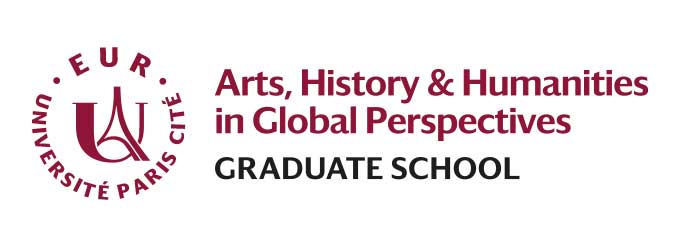
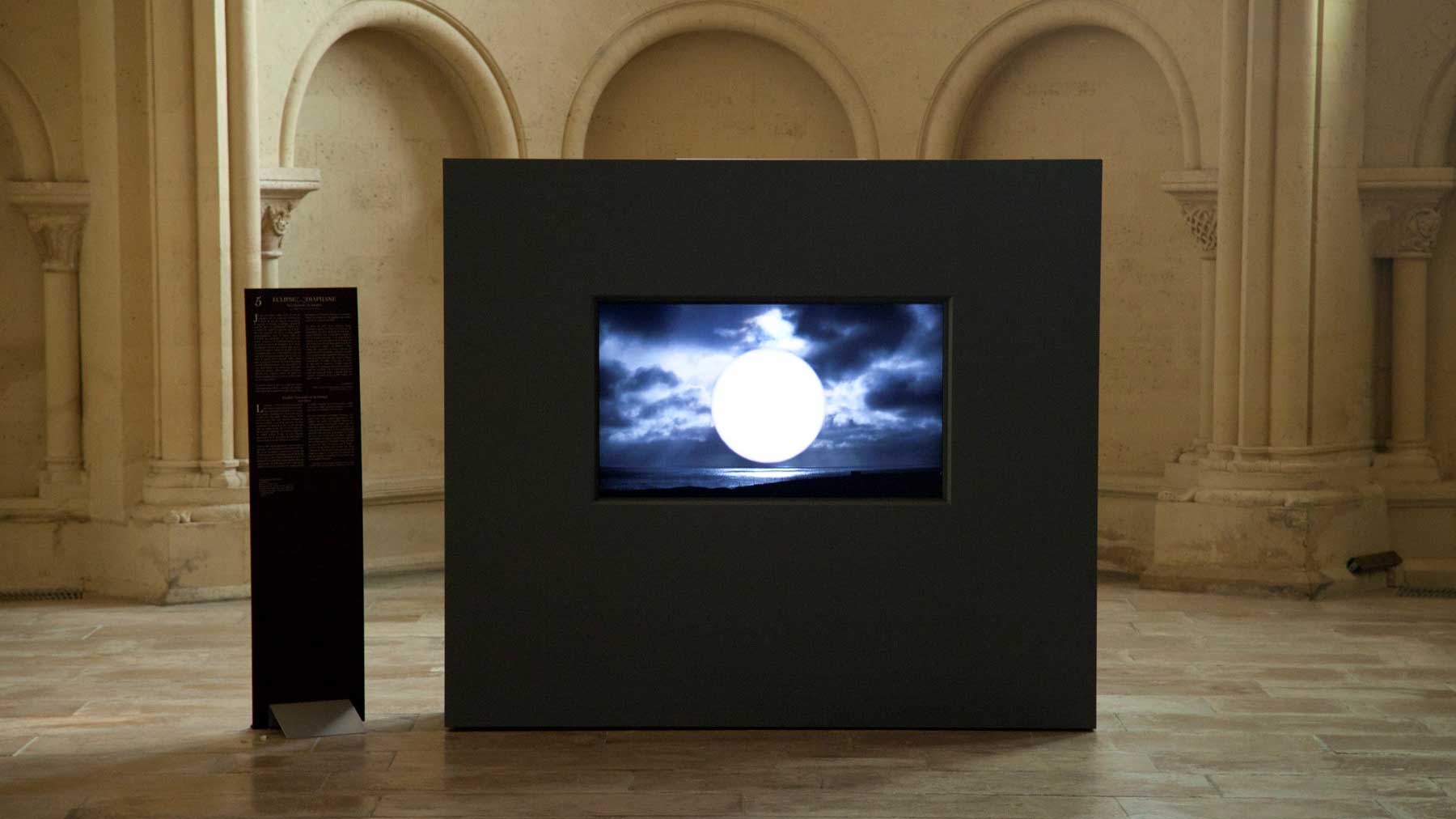
Image courtesy the artist. First Light © 2015 by Lily HIBBERD is licensed under CC BY-NC-ND 4.0. To view a copy of this license, visit: creativecommons.org
© Lily HIBBERD, First Light, installation view, Musée des Arts et Métiers, Paris, 2015.
Presentation
The Graduate School of Arts, History, and Humanities in Global Perspectives offers an invigorating academic setting designed to inspire cutting-edge research and teaching across a diverse spectrum of disciplines in humanities. From literature and history to social sciences, visual culture, and environmental studies, our institution encourages dynamic exploration and innovation. Our Graduate School has pioneered an interdisciplinary approach that facilitates a comprehensive examination of social, artistic, cultural, and political practices. By encompassing a wide array of humanities disciplines, we provide students with a distinctive environment for conducting research on contemporary global issues and their profound influence on our social, cultural, and political fabric.
The Graduate School actively promotes cross-pollination and collaboration among diverse thematic interests, spanning the realms of aesthetics, social sciences, environmental humanities, gender and sexuality studies, health, architecture and urban heritage, energy studies, and postcolonial and decolonial studies. In doing so, it embraces a methodology that harnesses a broad spectrum of resources, including texts, images, archives, oral history, artefacts, and socio-cultural data, to discern their impact on the evolution of our shared collective identities across history.
Arts, History, and Humanities in Global Perspectives places a significant emphasis on the intricate interplay of people, ideas, objects, forms, and technologies, as well as the evolving landscape of political and cultural expressions showcased through cultural creations (literature, visual arts, and material culture). Our academic offerings span a spectrum of disciplines, from history, social sciences, literature (in both French and English studies, and comparative studies) to political science, film studies, as well as postcolonial and decolonial studies, art history and the cultural and creative industries. With an academic diversity, Arts, History, and Humanities in Global Perspectives aims to provide students with a dynamic and up-to-date outlook on the latest developments within humanities.
Nestled in the vibrant heart of Paris and alongside the picturesque banks of the Seine in the district of Bibliothèque François Mitterrand, our Graduate School stands as the city’s singular international research institution of its calibre. Here, we provide students with an invigorating, dynamic academic setting and foster a stimulating intellectual community, where they can embark on research endeavours rooted in innovative epistemological dialogues.
The Graduate School of Arts, History, and Humanities in Global Perspectives is part of a vast global network of university partnerships in Europe, the Americas, and Asia.
- In Europe, the Graduate School of Arts, History, and Humanities in Global Perspectives actively engages in the Circle U programme with esteemed institutions such as the Universities of Oslo, Aarhus, Vienna, Humboldt, King’s College London, Catholic University of Louvain, Pisa, Belgrade, as well as collaborations with Oxford University, University of Lausanne, University of Bielefeld, and University of Bologna.
- In the Americas, the Graduate School of Arts, History, and Humanities in Global Perspective maintains strong affiliations with prestigious institutions like the University of Chicago, Duke University, the University of Toronto, the University of Buenos Aires, and the University of Campinas (Brazil).
- Furthermore, across Asia, we foster productive partnerships with the University of Kobe in Japan and the NUS in Singapore.
Within this extensive global network, the Graduate School of Arts, History, and Humanities in Global Perspectives offers its students a rich tapestry of opportunities, including joint international seminars and biannual international summer schools. Additionally, our curriculum emphasizes research-based teaching methods, and students have the chance to spend a semester at select partner universities, further enriching their academic experience.
Contact
Emmanuelle ANDRÉ
emmanuelle.andre@u-paris.fr
François DE CHANTAL
fdechantal@u-paris.fr
Stéphane PATIN
stephane.patin@u-paris.fr
Claire TRAN
thi-lien.tran@u-paris.fr
Masters
List of Master’s programs taught in French:
- Energy:
- Film and audiovisual studies:
- General and comparative literature:
- History, civilisations, heritage:
- Humanities:
List of Master’s programmes taught in French and English (with selected courses offering a third language):
- Applied foreign languages:
- Film and audiovisual studies:
- Foreign and regional languages, literature and civilisations:
- History, civilisations, heritage:
Research
The Graduate School of Arts, History, and Humanities in Global Perspectives comprises teacher-researchers with distinct expertise in specialised fields, including literature, arts, visual culture, history, and political science. Cross-disciplinary work is a prevailing approach embraced by the various research groups within the Graduate School.
From an institutional standpoint, the Graduate School of Arts, History, and Humanities in Global Perspectives traces its roots to several key research centres in humanities and social sciences within Université Paris Cité. Many of these teams have affiliations with the Centre National de la Recherche Scientifique (CNRS) and its extensive network of research units worldwide. Additionally, the Graduate School engages in collaborative efforts with other esteemed research institutions, including the École des Hautes Études en Sciences Sociales, the Institut National des Langues et Civilisations Orientales (INALCO), and the Institut de Recherche et de Développement (IRD).
The Graduate School of Arts, History, and Humanities in Global Perspectives also maintains close connection with cultural institutions such as the Cinémathèque française, the Louvre, the Institut National de l’Audiovisuel (INA), La Contemporaine (library-museum on visual sources) and the V&A in London.
The teams at the Graduate School are actively involved in research that is intricately connected to the forefront of developments and innovative methodologies within humanities and social sciences. This commitment is particularly evident in the domains of digital humanities, environmental and health humanities, global history, heritage and urbanism, gender studies, sound studies, visual culture, film studies, and material culture.
The educational approach atthe Graduate School of Arts, History, and Humanities in Global Perspectives is firmly rooted in research. Our integrated Master’s-Doctorate programme is designed to empower students to actively engage in the research activities of our centres and equip themselves for future doctoral programmes. The Graduate School’s research-based training encompasses the following components:
- Seminars organised by our diverse research groups, which Master’s students can join from their second year onward.
- A progressive research pathway, bridging from Master’s to PhD, that incorporates workshops led by members of the Graduate School’s research teams. These workshops facilitate a gradual immersion into the world of research.
- Opportunities to participate in conferences and summer schools organised by the research units within the Graduate School.
In addition to our research focus, the Graduate School of Arts, History, and Humanities in Global Perspectives places a strong emphasis on professional development and internships. To this end, we are actively cultivating an internship programme in collaboration with cultural institutions such as museums, art centres, and the Cinémathèque française. Our objective is to enhance students’ prospects for successful integration into the professional world.
Laboratories
- ANHIMA – Anthropologie et Histoire des Mondes Antiques (UMR 8210)
- CERILAC – Centre d’Études et de Recherches Interdisciplinaires en Lettres, Arts, Cinéma (URP 441)
- CESSMA – Centre for social sciences studies on the African, American and Asian worlds (UMR 245)
- ICT – Identités, Cultures, Territoires – Les Europes dans le Monde (UR 337)
- LARCA – Laboratoire de Recherche sur les Cultures Anglophones (UMR 8225)
- LIED – Paris Interdisciplinary Energy Research Institute (UMR 8236)
- ICT – Identités, Cultures, Territoires – Les Europes dans le Monde (UR 337)
Executives
- Emmanuelle ANDRÉ
Professor, UFR Lettres, Art et Cinéma (LAC) - François DE CHANTAL
Professor, English Studies Department (EA) - Stéphane PATIN
Professor, Intercultural Studies and Applied Languages Department (EILA) - Claire TRAN
Senior Lecturer, Geography, History, Economics, and Society Department (GHES)
À lire aussi
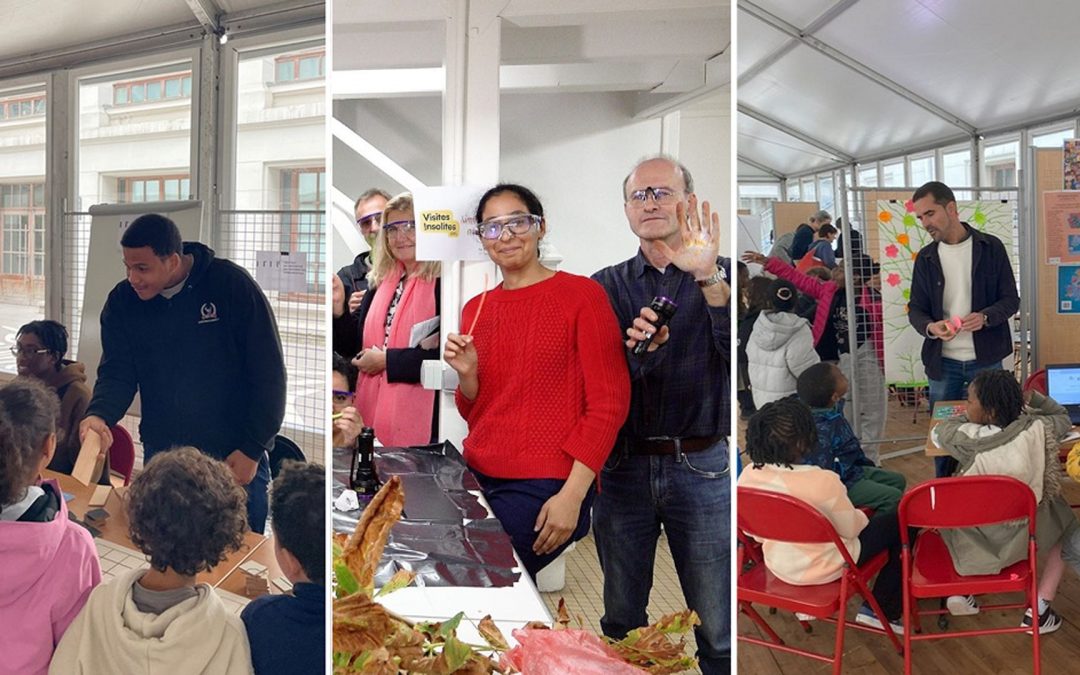
Appel à propositions : participez à la Fête de la Science 2026 autour du thème “Saveurs savantes” !
L’Université Paris Cité participe à la Fête de la Science et invite sa communauté à partager la recherche avec le grand public autour du thème « Saveurs savantes », consacré à l’alimentation sous toutes ses dimensions. La 35e édition se déroulera du 2 au 12 octobre...

Comment les microbes protègent de l’allergie
Une étude menée par des scientifiques de l'Institut Pasteur, organisme de recherche partenaire de l’Université Paris Cité, révèle que les microbes protègent le poumon contre le développement ultérieur d'allergies et d'asthme. Cette protection durable est « mémorisée »...
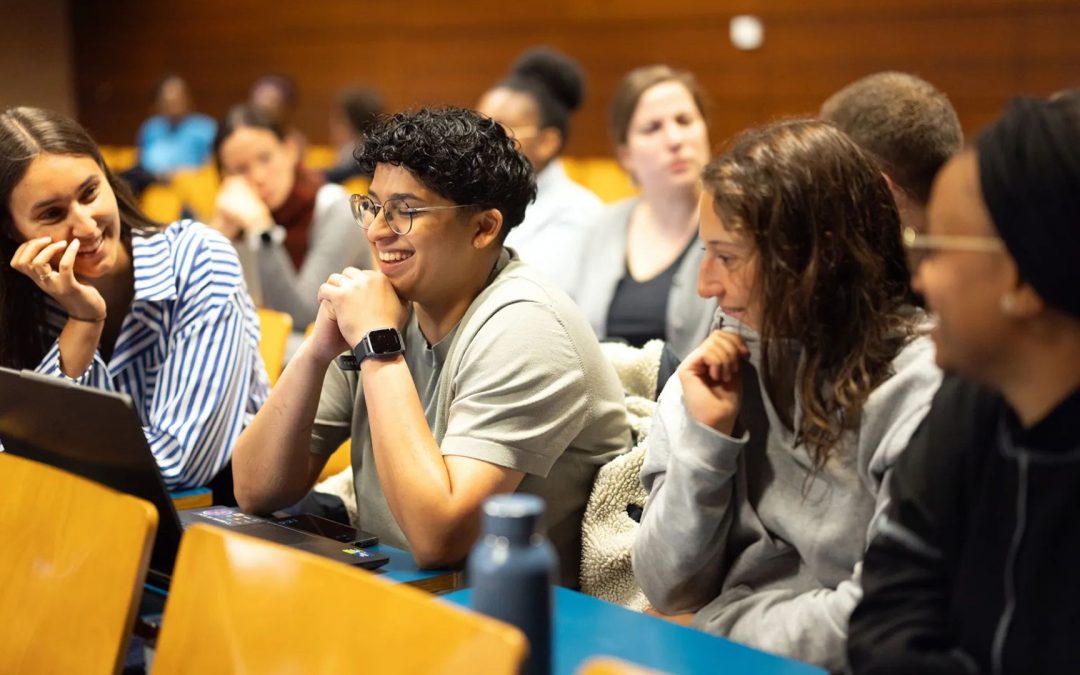
Nouvelles écoles d’été Circle U. !
Vous souhaitez vous inscrire aux écoles d'été de l'alliance Circle U. ? Les candidatures sont encore ouvertes pour plusieurs d'entre elles ! Renseignez-vous !
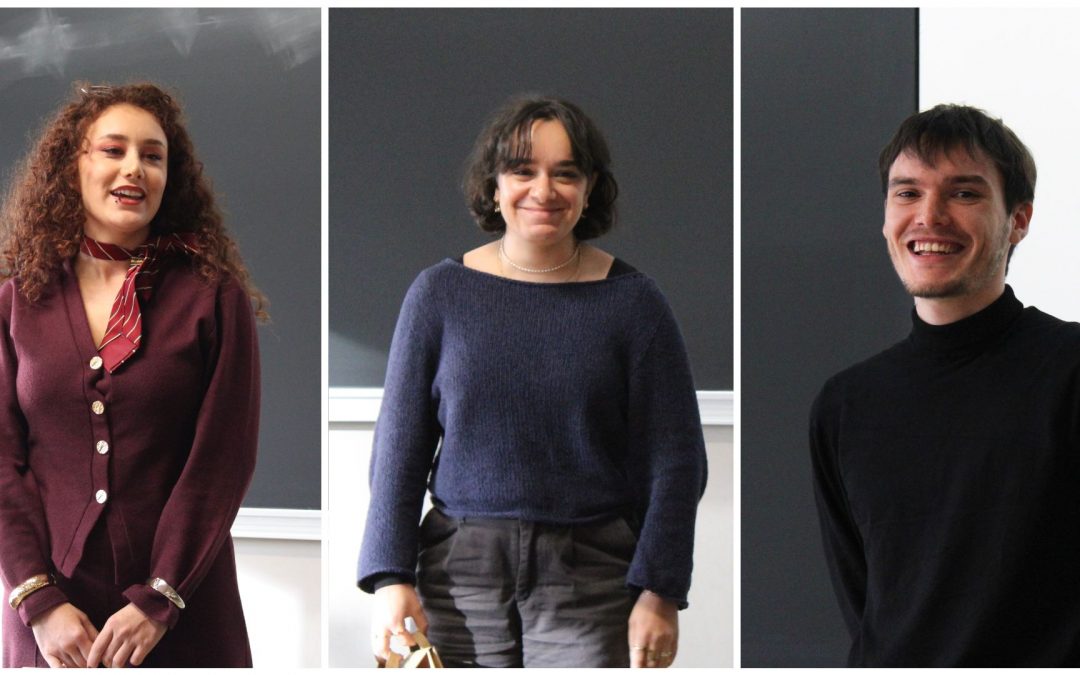
Graduate School Sustainability, Organisations and Institutions Best Thesis Awards: Celebrating Scientific Excellence in Sustainability
The Graduate School Sustainability, Organisations and Institutions held its traditional awards ceremony for the Best Theses of its students. This distinction highlights the scientific excellence of research devoted to sustainable development and sustainability. Meet...
